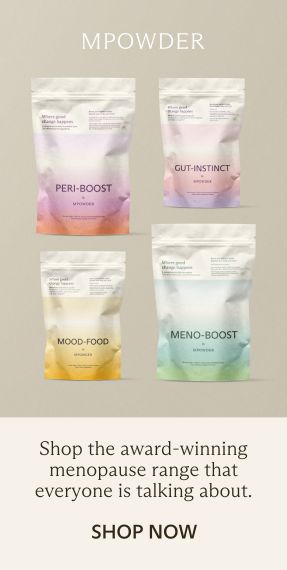Anger. For many women, it can arrive in midlife with a force that feels unfamiliar. It may flare up suddenly. It may simmer under the surface. It may be directed outward — or inwards.
If you’ve found yourself more irritable, reactive, or emotionally overwhelmed than usual, you’re not alone. Menopause and anger are closely linked, with studies showing that hormonal shifts can significantly influence mood regulation.
But this isn’t something to fear or hide. It’s something to explore — and support. Sometimes anger is a signal. A message. Perhaps you need to push yourself up the priority list a little? Maybe you need some time to work out what you want - both ‘now’ and ‘next’.
Midlife is an opportunity to listen in, take stock, and give your body and mind what they need to rebalance.
Today’s journal explores the practical, evidence-informed insight into menopause and anger, and what may give you the support you need.
Why does menopause trigger anger?
As oestrogen declines, so too does its effect on serotonin and dopamine — the neurotransmitters responsible for feelings of calm, pleasure and stability. At the same time, the body’s stress response may heighten, and sleep patterns often fragment. The result? A shorter fuse. Heightened sensitivity. Emotional swings that can feel sudden and disorienting.
It’s not ‘just in your head’. And it’s not a character flaw. It’s biology. And with the right tools, it can be supported.
The best supplements for menopause and anger
1. Ashwagandha (KSM-66®)
A clinically studied adaptogen that helps regulate cortisol and reduce perceived stress. Multiple studies show it supports mood, reduces anxiety, and enhances sleep2. Please always ensure you’re working with high-grade botanical sources. We only use Ashwagandha KSM-66 - it’s the best researched, cleanly extracted and organic too. Found in: MENO-BOOST and MOOD-FOOD
2. Magnesium (as bisglycinate or malate)
Known as ‘nature’s relaxant’, magnesium supports the nervous system, regulates mood, and helps manage irritability and anxiety3.
Found in: PERI-BOOST, MENO-BOOST, and MOOD-FOOD
3. Lemon Balm (Melissa officinalis)
Traditionally used to ease nervous tension, lemon balm has been shown to improve mood and cognitive performance in women experiencing anxiety and irritability4.
Found in: MENO-BOOST and MOOD-FOOD
4. B-Vitamins (especially B6, B12, folate)
Essential for nervous system function and neurotransmitter production. Low levels of B-vitamins are associated with mood disorders, including irritability and depression5.
Found in: PERI-BOOST, MENO-BOOST, and MOOD-FOOD
5. Turmeric root
An anti-inflammatory that has been shown to ease symptoms of low mood and emotional tension. Curcumin can also support brain health and calm oxidative stress in the nervous system6. We work with high potency curcumin extract, which allows us to deliver 20x times more of the active compound than the root.
Found in: MOOD-FOOD
What else helps?
Movement: Regular low-impact exercise has been shown to improve mood and reduce menopausal symptoms
Sleep support: Establishing a sleep routine can reduce emotional reactivity
Community: Sharing what you’re experiencing, especially with others navigating this lifestage too, helps us recognise the impact of the biochemical shift and creates space for solutions
Explore our MOOD collection to find additional tools, powders and adaptogens that work in synergy with your body.
Final thought
Menopause and anger are deeply intertwined — but they don’t define who you are. These feelings are real. They’re valid. And they’re navigable too.
With the right support, anger can become a signal — not something to silence, but something to learn from. It can point to what’s not serving us. What’s ready to change. And how we might begin again, with better tools and greater strength.
Footnotes
Freeman, E. W. (2010). Effects of hormone therapy on mood during the menopausal transition.https://www.ncbi.nlm.nih.gov/pmc/articles/PMC2870772/
Lopresti, A. L., et al. (2019). A systematic review of ashwagandha and its anti-anxiety effects.https://doi.org/10.3390/medicines6010030
Tarleton, E. K., et al. (2017). The impact of magnesium supplementation on depression and anxiety.https://www.ncbi.nlm.nih.gov/pmc/articles/PMC5487054/
Kennedy, D. O., et al. (2002). The effects of lemon balm on mood and cognitive performance.https://pubmed.ncbi.nlm.nih.gov/12062586/
NIH Office of Dietary Supplements. Vitamin B Complex and Mental Health.https://ods.od.nih.gov/factsheets/VitaminBComplex-HealthProfessional/
Sanmukhani, J., et al. (2014). Efficacy and safety of curcumin in major depressive disorder: a randomised controlled trial. https://pubmed.ncbi.nlm.nih.gov/23832433/
Share Twitter Facebook Pinterest

